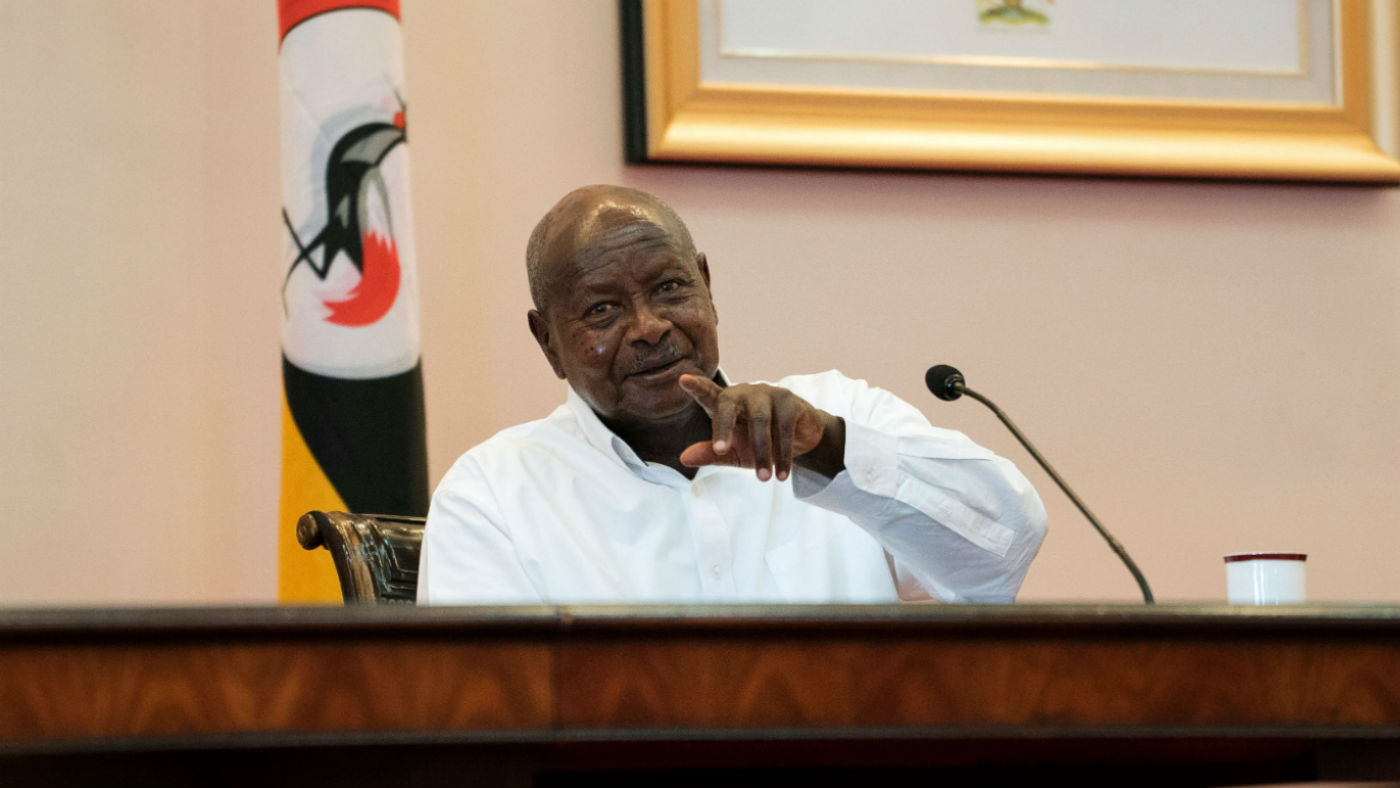‘The mouth is for eating’: Uganda’s president warns against oral sex
President Yoweri Museveni condemns ‘wrong’ sex acts brought in by ‘outsiders’

A free daily email with the biggest news stories of the day – and the best features from TheWeek.com
You are now subscribed
Your newsletter sign-up was successful
Uganda’s president has warned the country’s citizens not to engage in “outsider” sexual practices such as oral sex.
In a televised press conference, President Yoweri Museveni said: “Let me take this opportunity to warn our people publicly about the wrong practices indulged in and promoted by some of the outsiders.”
“The mouth is for eating, not for sex,” he said, adding: “We know the address of sex; we know where sex is.”
The Week
Escape your echo chamber. Get the facts behind the news, plus analysis from multiple perspectives.

Sign up for The Week's Free Newsletters
From our morning news briefing to a weekly Good News Newsletter, get the best of The Week delivered directly to your inbox.
From our morning news briefing to a weekly Good News Newsletter, get the best of The Week delivered directly to your inbox.
The remarks come as part of a broader crackdown on sexual freedoms by the socially conservative evangelical leader.
Sexual activity “against the order of nature” has been outlawed under Uganda’s penal code since the colonial era, but Museveni’s comments reflect a toughening of existing laws in recent years, mostly targeting the LGBT community.
Amid rising concern about the “spread” of homosexuality, partly stoked by US-backed evangelical Christian preachers, in 2009 one of Museveni’s ministers proposed legislation making same-sex activity punishable by death.
The proposal, nicknamed the “Kill the Gays bill”, quickly drew international condemnation.
A free daily email with the biggest news stories of the day – and the best features from TheWeek.com
A toned-down version of the bill making “aggravated homosexuality” punishable by life in prison passed in December 2013.
Signing it into law, Museveni referred to gay Ugandans as “mercenaries” and “prostitutes” and repeated his oft-stated belief that homosexuality was not a legitimate orientation, Information Nigeria reported at the time.
“I have failed to understand that you can fail to be attracted to all these beautiful women and be attracted to a man,” he said. “There is something really wrong with you.”
The country’s constitutional court overturned the legislation the following year on technical grounds. However, LGBT Ugandans continue to suffer violence and persecution, often sanctioned by officials.
-
 Key Bangladesh election returns old guard to power
Key Bangladesh election returns old guard to powerSpeed Read The Bangladesh Nationalist Party claimed a decisive victory
-
 Judge blocks Hegseth from punishing Kelly over video
Judge blocks Hegseth from punishing Kelly over videoSpeed Read Defense Secretary Pete Hegseth pushed for the senator to be demoted over a video in which he reminds military officials they should refuse illegal orders
-
 Trump’s EPA kills legal basis for federal climate policy
Trump’s EPA kills legal basis for federal climate policySpeed Read The government’s authority to regulate several planet-warming pollutants has been repealed
-
 Epstein files topple law CEO, roil UK government
Epstein files topple law CEO, roil UK governmentSpeed Read Peter Mandelson, Britain’s former ambassador to the US, is caught up in the scandal
-
 Iran and US prepare to meet after skirmishes
Iran and US prepare to meet after skirmishesSpeed Read The incident comes amid heightened tensions in the Middle East
-
 Israel retrieves final hostage’s body from Gaza
Israel retrieves final hostage’s body from GazaSpeed Read The 24-year-old police officer was killed during the initial Hamas attack
-
 China’s Xi targets top general in growing purge
China’s Xi targets top general in growing purgeSpeed Read Zhang Youxia is being investigated over ‘grave violations’ of the law
-
 Panama and Canada are negotiating over a crucial copper mine
Panama and Canada are negotiating over a crucial copper mineIn the Spotlight Panama is set to make a final decision on the mine this summer
-
 Why Greenland’s natural resources are nearly impossible to mine
Why Greenland’s natural resources are nearly impossible to mineThe Explainer The country’s natural landscape makes the task extremely difficult
-
 Iran cuts internet as protests escalate
Iran cuts internet as protests escalateSpeed Reada Government buildings across the country have been set on fire
-
 US nabs ‘shadow’ tanker claimed by Russia
US nabs ‘shadow’ tanker claimed by RussiaSpeed Read The ship was one of two vessels seized by the US military